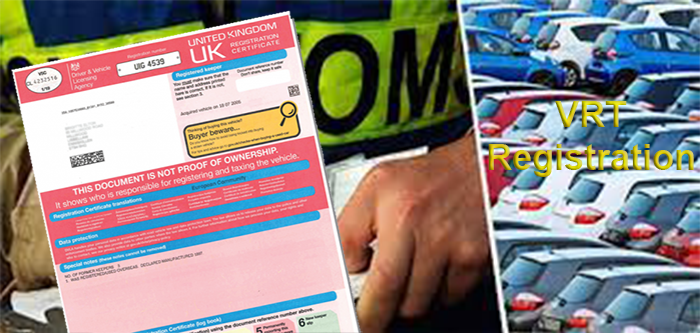What is the Checklist of Documents Required for VRT?
Forms needed when registering for VRT
A car VRT or the Vehicle Registration Tax is an amount that you need to pay while registering a vehicle in Ireland. It is illegal in Ireland to drive a vehicle without registration or paying VRT. Once you purchase a car, you need to set up an appointment with the National Car Testing Service or the NCTS within 7 days of the vehicle’s arrival and pay the VRT fees within 30 days. The NCTS provides you with a vehicle registration certificate that proves you have paid your VRT dues which keeps your vehicle from getting detained.
On the surface, the VRT application and payment procedure may seem complicated. The list of documents required may seem endless. But you only need a few necessary papers that you either get directly from the dealership or from the seller, and the process from thereon is quite simple.
Here is a checklist of the documents you need to have to get your vehicle registered and pay the required car VRT.
A Certificate of Conformity for new cars
A Certificate of Conformity (CoC) comes from the vehicle manufacturer that lists details specific to the car you have bought. Along with make, model and year of manufacture, the CoC lists the car’s conformity to EU’s safety and emission standards, test results of noise and exhaust, dimension and capacity specifications, and more.
Before the appointment with the NCTS, you must enter the CoC into the Ireland Revenue System in XML format. This is available directly from the manufacturer. However, if your CoC is in printed form, you must manually input the details into the Revenue System.
A Foreign Certificate of Registration for imported used cars
A used vehicle coming to Ireland from another country must have been registered in that foreign country. Along with the CoC, you will also need to present the foreign certificate of registration or a certificate of permanent exportation that you must collect from the used vehicle seller. In case the vehicle is already deregistered in a foreign country before arriving in Ireland, you will need the certificate of de-registration for the VRT check and payment in Ireland.
A filled-out VRT form
You can download the VRT from the NCTS website and fill in the necessary details for the day of the appointment. The form is divided into four sections that collect specific information on the vehicle, manufacturing specifications, new owner particulars and more. The NCTS will also need to verify the CO2 emission figures upon which the car VRT is ultimately calculated.
A filled-out Vehicle Purchase Details form
This form is also known as the VRTVPD2. Again, you can download the VRT Vehicle Purchase Details form from the Revenue website and fill in the necessary details like VIN or Chassis number of the car you have bought, the details of the person or business from whom you have bought your car, the purchase price, the VAT amount paid and others. You will also have to attach a copy of the invoice you received from the car dealer at the time of purchase.
Proof of your identity and address
You will need to produce your identity and proof of address at the NCTS centre. Your Utility or Bank Statement is considered valid and acceptable proof. Your passport or driving licence also holds weight. You cannot, however, use your Television Licence as ID and address proofs at the NCT.
Your Personal Public Service Number
As you will be dealing with a public service agency in Ireland for your car’s VRT check, you will have to produce your PPSN along with proof of the same. For example, any document issued to you by the Ireland Revenue Commissioners like the P60 will have your PPS number along with your name and address. A copy of the same will work at the NCTS.
But if you are buying from an authorised dealer in Ireland, the PPS number is then substituted by the Revenue Customer Number as the dealer registers the vehicle on behalf of the customer. A VAT or CT number then works fine.
An Exemption Notification Letter from Revenue
In a few instances, vehicle owners are exempted from paying a car’s VRT. If you are transferring your residence to Ireland and if you are bringing your own vehicle along, or if you are bringing a foreign-registered vehicle into the country temporarily, you may not have to pay a VRT. You will then receive an appropriate exemption notification letter from the Revenue and can register your car vehicle registration tax-free at the NCTS centre.
Depending on your special case, you may also need an Export Repayment Scheme form or a CO2 emission document. From here on, arrive at the NCTS on the day of your appointment, get the VRT check done, pay the tax and you are done.
Author

Justin Kavanagh
Justin Kavanagh is a recognised leader
in automotive intelligence and vehicle
data supply to the entire motor industry.
He has almost 20 years experience in
building systems from the ground up.
As the Managing Director of Vehicle
Management System, he understands the
need and importance of trustworthy and
reliable vehicle history and advice to
both the trade and the public.
Follow me on LinkedIn
